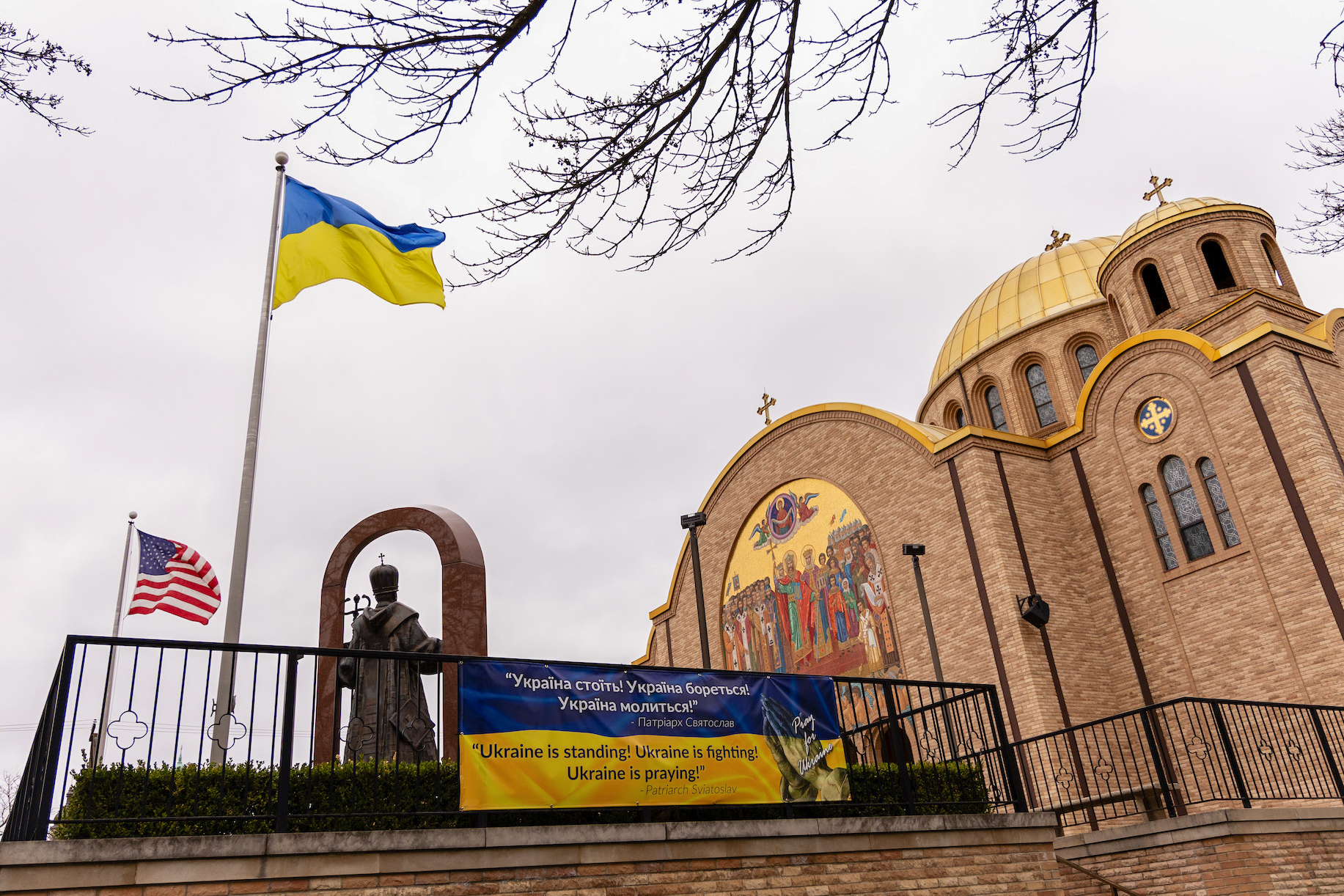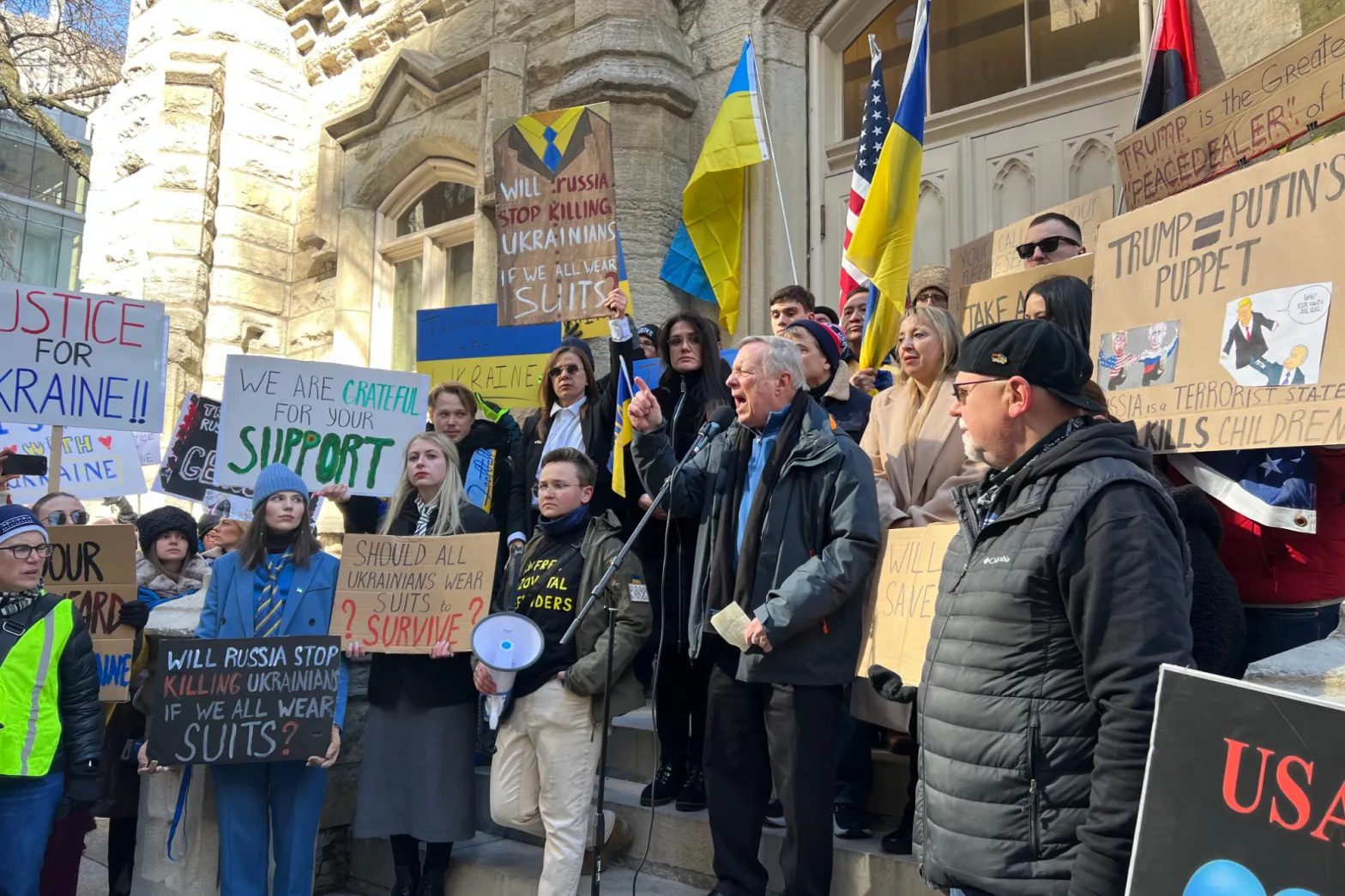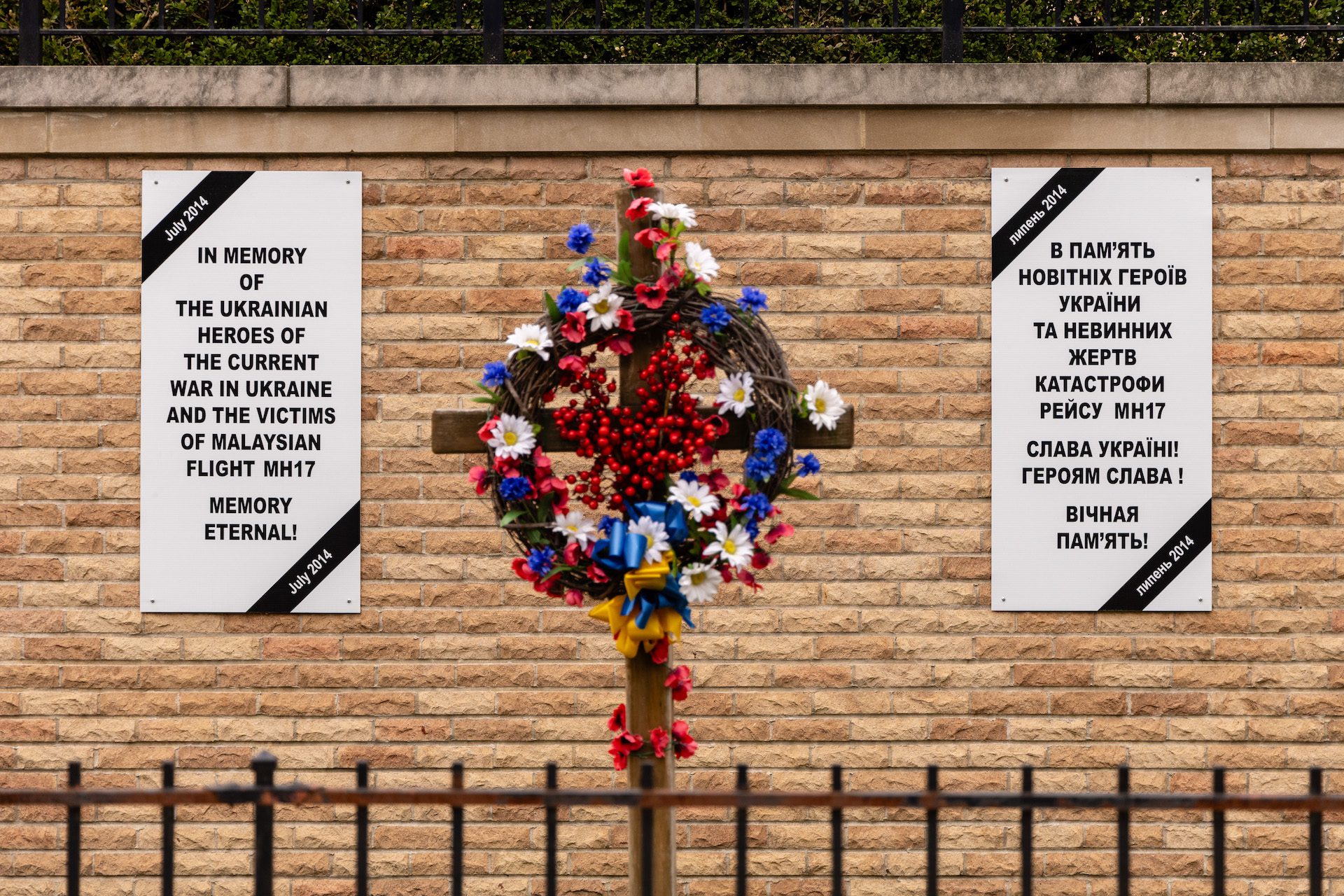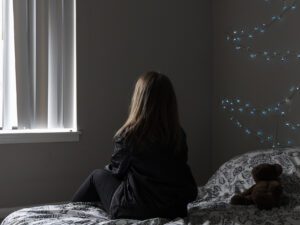 Oscar Gomez/Borderless Magazine
Oscar Gomez/Borderless MagazineSince Russia’s 2022 invasion, over 30,000 Ukrainians have rebuilt their life in Chicago. Now, under Trump, they face uncertainty even as the war continues.
For over three years, Ukrainians fleeing Russia’s invasion of their country have found a community in Chicago.
Along residential blocks and commercial corridors in the city’s Ukrainian Village, the country’s blue and yellow flags greet passersby, a symbol of ongoing support for the wartorn country.
“Walking in the Ukrainian Village makes you feel at home,” said Yuliia, who came to the U.S. with her mother through a tourist visa in May 2022. Yulia, who asked to be referred by her first name, later applied for the Uniting for Ukraine program. “You meet a lot of Ukrainians; there are a lot of grocery stores and restaurants, which makes it like small Ukraine.”
News that puts power under the spotlight and communities at the center.
Sign up for our free newsletter and get updates twice a week.
Since Russia invaded Ukraine in 2022, over 30,000 Ukrainians have arrived in Chicago as refugees — some as part of Humanitarian parole initiatives like the Uniting for Ukraine Program. Former President Joe Biden launched the program as a sign of support in 2022.
“The support from Americans has been amazing,” said Halyna Fedus, a Ukrainian immigrant who has lived in Chicago since the 1990s but has close families, including her parents and brothers in Ukraine. “It shows how much people care.”
But that sense of relief has started to fade.
Since returning to office in January, Donald Trump has sharply departed from the Biden administration’s approach. He has taken a hardline stance against Ukraine, temporarily withholding intelligence and military aid and calling Ukrainian President Volodymyr Zelenskyy a “dictator.”
Now, as ceasefire negotiations are underway, Ukrainian immigrants in Chicago and nationwide are worried about their future in this country and what peace on Russia’s terms means for their homeland.
“I stopped watching the news because I am scared of losing hope,” said Fedus. “I just want Ukraine to be peaceful again.”
A Community in Limbo
Chicago’s Ukrainian community, among one of the largest in the U.S., has grown since Russia invaded the country three years ago. Over 57,449 Ukrainians reside in Illinois, with about 10,000 in the Ukrainian Village.
Trump’s about-face on Ukraine’s foreign policy, suspension of the Humanitarian Parole Program and delays on parole status and work authorization have created uncertainty for Ukrainians in the United States.
“Since February 2022, we have helped more than 5,000 Ukrainians, half of whom are based in Chicago,” said Nataliia Kohut, Ukrainian program manager at RefugeeOne. “Since the past three months, we have been getting many calls—a lot of clients who have applied for an Employment Authorization Document (EAD) haven’t received it yet. A lot of them will probably lose their jobs because they will not get this EAD card on time.”
Read More of Our Coverage
Despite challenges, many Ukrainian refugees are determined to rebuild their lives and contribute to their new communities.
“I started working within one month of arriving in the U.S.,” said Igor, a refugee from the Chernihiv region. “I opened a business with my partner, and I’m helping the economy.”
Igor, who asked to be identified by his first name only, fled Ukraine in the early hours of Feb. 24, 2022, when Russia launched its full-scale invasion. “I woke up at 3:00 a.m. to the sound of explosions,” he recalled.
“I knew I had to get my mother to safety. We tried to go to Kyiv, but the city was closed. We ended up driving to Western Ukraine with relatives.”
His mother lives in Austria under temporary protection, while Igor resettled in Chicago through humanitarian parole. “Life was peaceful before the war,” he said.
“But now, my parents are in Austria, and my relatives are in Ukraine. Almost every day, they hear explosions—it’s really loud, and every night, they go to the bomb shelters.”
The Impact of U.S. Policy on Ukrainians
While Americans have shown overwhelming support for Ukrainians, recent political shifts have created uncertainty.
Chicagoans and Ukrainians witnessed fissures in diplomatic relations that have played out publicly.
Tensions escalated after Zelenskyy’s recent meeting at the Oval Office. During the visit, Trump rebuked and falsely blamed him for the conflict. Vice President JD Vance chastized Zelenskyy for not wearing a suit.
“I am saddened, shocked, stunned at what happened in the Oval Office last week with President Zelenskyy,” said Sen. Dick Durbin, D-Ill. “I stand behind Ukraine because I believe those people are fighting for the very values that we treasure.”

Last month, Durbin introduced a bill called “the Protecting Our Guests During Hostilities in Ukraine Act.” The legislation would grant temporary legal status to Ukrainians and their immediate family members already in the U.S. through the Uniting for Ukraine parole process. If passed, the legislation would allow them to remain and work in the U.S. until the secretary of state confirms that conditions in Ukraine are safe for them to return.
“Many Ukrainians who are living now in the Chicagoland area fled cities of Ukraine where they have nothing to return to because of the war,” Kohut said.
According to the Kyiv Independent, the estimated number of casualties from the Ukrainian side reached 435,000 earlier last year. “Ukraine has lost 45,100 soldiers and a total of 390,000 cases of soldiers sustaining wounds on the battle,” the report noted, though the actual number of casualties is likely higher.
Ceasefire Talks
On March 24, U.S. and Russian officials convened in Riyadh, Saudi Arabia, to discuss securing a maritime truce in the Black Sea and ending Russia’s war on Ukraine.
Meanwhile, President Vladimir V. Putin’s army continued bombarding Ukraine. He agreed only to a moratorium on attacks targetting the energy infrastructure and a halt on military activity over the Black Sea.
Last week, Putin questioned Zelenskyy’s legitimacy to sign a peace deal and suggested a temporary Ukrainian government under the auspices of the United Nations.
Trump criticized both Putin and Zelenskyy, expressing frustration with the leaders as he struggled to bring both leaders together and put an end to the three-year-old war. In a Sunday interview with NBC News, Trump said he was “very angry and pissed off” at Putin for questioning Zelenskyy’s credibility. He also noted he would consider adding new sanctions on Russia.
While Trump said he plans to speak with Putin again this week, skepticism persists among European leaders regarding Russia’s commitment to genuine compromise.
“It is still very much unclear that a ceasefire will be reached, and if one is reached, whether it would last,” said Paul Poast, associate professor at the University of Chicago’s Department of Political Science.
Trump has made ending the war a central part of his campaign messaging, and “was even one of the first things he brought up during his victory speech on election night,” Poast stated. “Critically, I think Trump wants to broker a ceasefire because he wants to be seen as the one who ended the conflict, doing something that Biden couldn’t.”
Despite these diplomatic efforts, skepticism remains within Chicago’s Ukrainian community.
“The war started in 2014, not 2022,” Igor said, expressing disappointment over the possibility of a ceasefire in Ukraine. “A ceasefire, it will not last long…Russia always attacks Ukraine.”

The war, Kohut said, has caused “immense suffering and displacement” for millions. “My heart breaks for the individuals and families affected, and I hope the administration can work toward peace and extend crucial support for those who have found a new home in the U.S., as so many don’t have a home to return to in Ukraine.”
Fatema Hosseini is a Roy W. Howard Investigative Reporting fellow covering immigrant communities for Borderless Magazine. Send her an email at [email protected].


